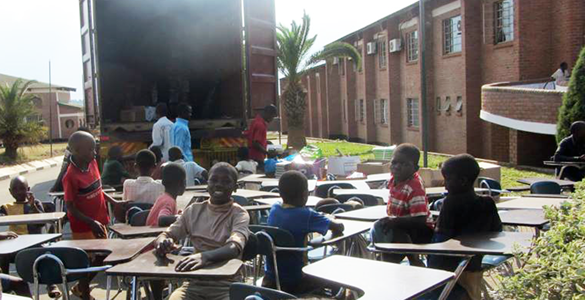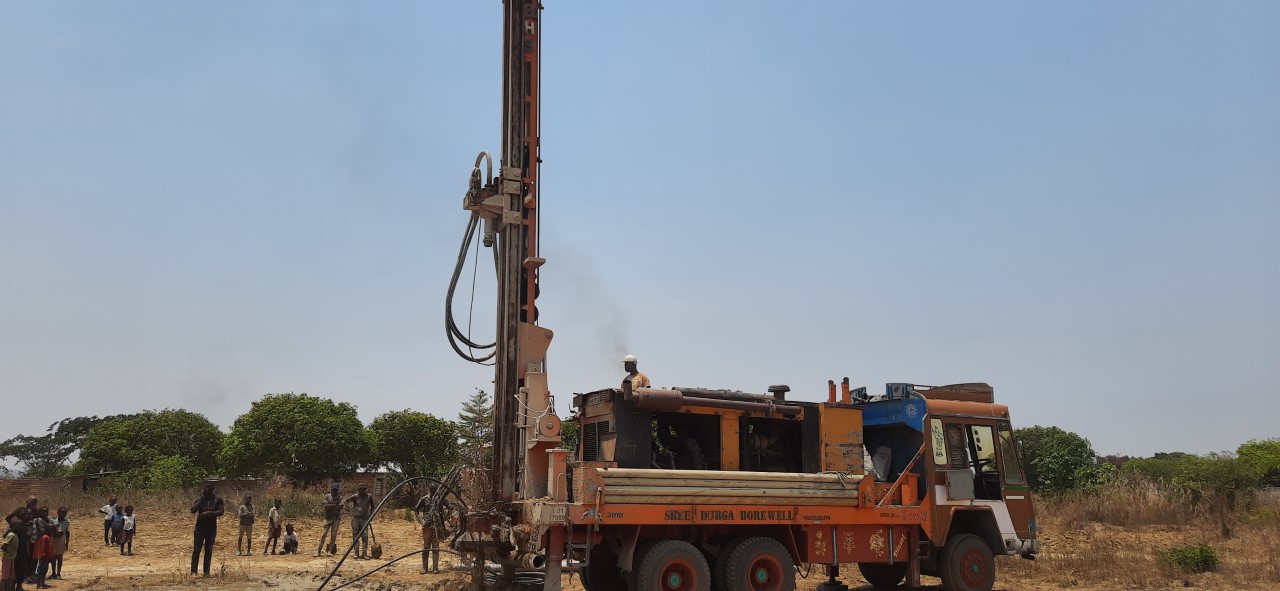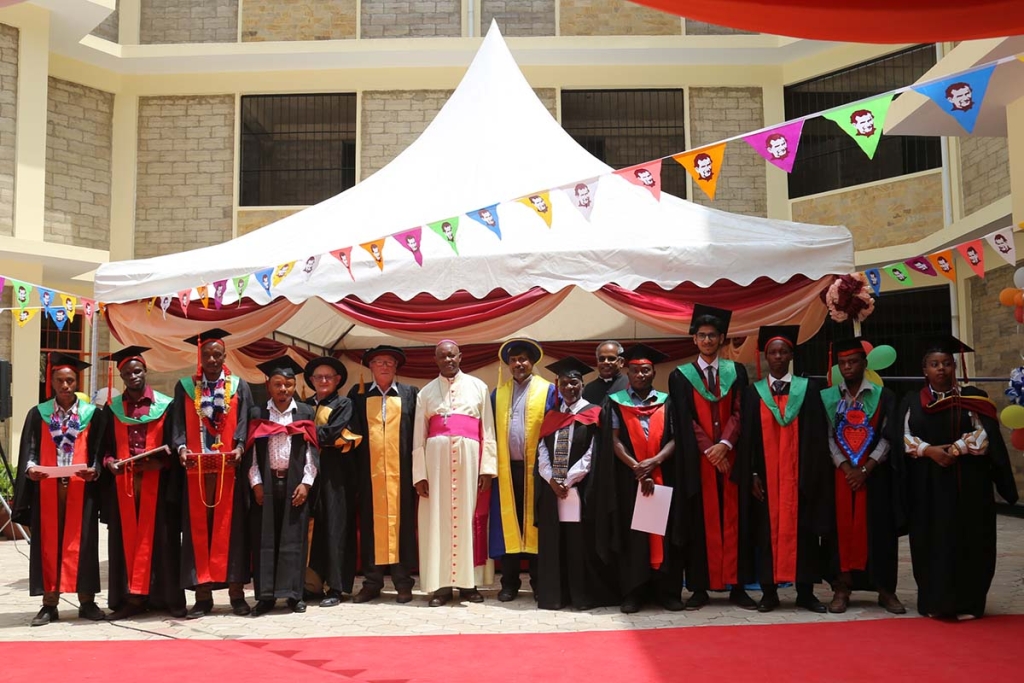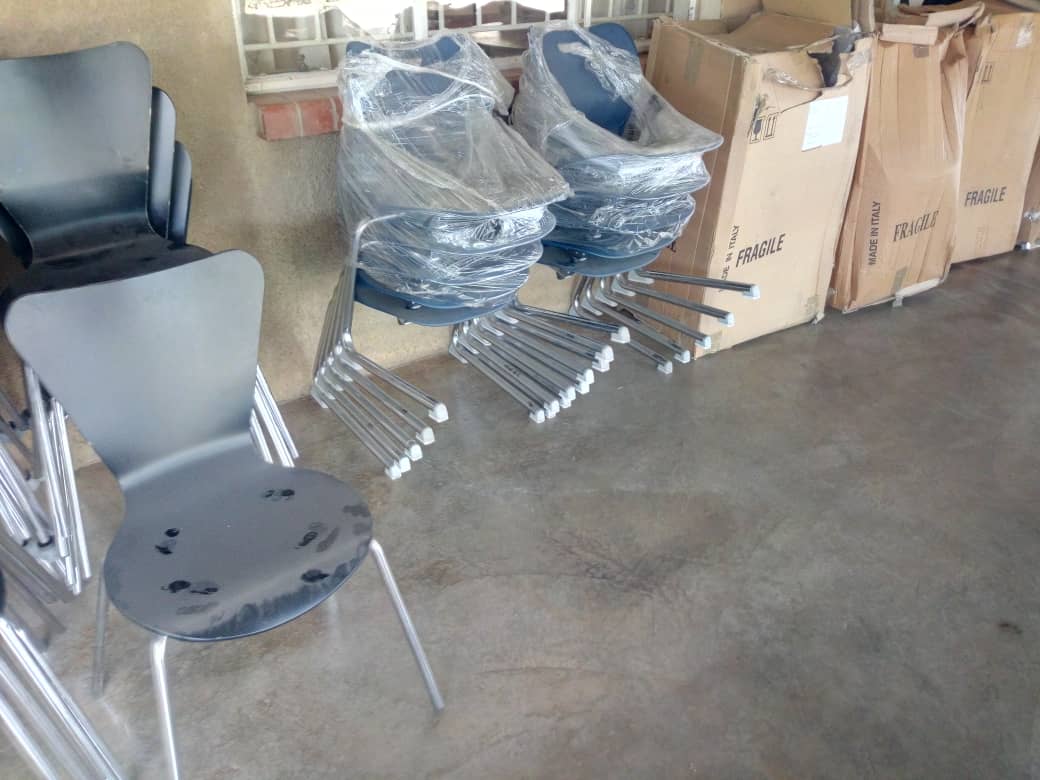MALAWI: Donated Supplies for New Library Reach Salesian School

(MissionNewswire) In Malawi, more than 50 percent of the population lives in poverty and the majority of households are female-headed, according to the World Bank. Located in southeast Africa, Malawi is a landlocked country bordered by Zambia to the northwest, Tanzania to the northeast and Mozambique to the east, south and west.
Agriculture is a central part of Malawi’s economy but land distribution is unequal and crops are highly vulnerable to the region’s frequent droughts. Few houses have piped water and less than one in 10 Malawians have access to electricity. Water is collected from wells or streams and most cook over an open fire. Malawians deal with hunger and malnutrition on a daily basis. According to USAID, 45 percent of the country’s children under age five are stunted due to a lack of adequate nutrition. Many children also lack educational opportunities and have few options for improving their circumstances.
Adding to an already difficult situation, most people in the country live far from health care services and lack the transportation and money to access adequate care. According to the World Bank, the average life expectancy in Malawi is 55 years old. The country also suffers from an HIV/AIDS epidemic with more than one in 10 adults infected and more than 90,000 people living with HIV/AIDS. Many children have been orphaned as a result and are living on their own or with relatives other than their parents.
Salesian missionaries in Milawi have been providing primary and secondary educational and technical skills training for poor youth for many years.
“Youth in Malawi have very few opportunities for education and for creating a better life for themselves and their families,” says Father Mark Hyde, executive director of Salesian Missions, the U.S. development arm of the Salesians of Don Bosco. “Salesian elementary and secondary education lays the foundation for early learning while vocational and technical schools teach practical skills so youth can become productive and contributing adults in their communities. Education has proven to be an effective means to break the cycle of poverty while giving the most vulnerable youth a sense of personal dignity and self-worth.”
Recently, Salesian Missions coordinated and shipped a container of donated school desks, chairs, shelves, books, computers, trade tools and other school and household supplies to a Salesian school in Lilongwe, the largest and capital city of Malawi, located in the central region of the country. The donation was prompted by Brother Robert Malusa, a Salesian missionary living and working in Malawi, who wished to start a library for students at the Salesian school.
The donations came from Salesian parishes and programs in the United States. Brother Malusa’s former parish in Long Island, New York organized a book drive and many of his friends purchased additional books on his wish list to include in the shipment. Mary Help of Christians Academy in New Jersey donated school desks and chairs and computers and additional books were donated by Saints John and Paul Parish in Larchmont, New York.
The donation of desks and chairs was shared with Don Bosco Youth Technical Institute in Lilongwe, one of the largest private colleges in Malawi and home to more than 600 students and 30 staff. Courses are offered in a wide variety of subjects including accounting, automobile mechanics, construction, electrical engineering, hospitality management, information and communication technology, and fashion, art and beauty. Prior to the donation, students had to use pre-school desks from the primary school next to the Institute.
“Adequate school supplies, including books and computers, offer students and teachers better educational resources,” says Fr. Hyde. “The addition of proper desks and chairs provides a more structured learning environment in which students can feel more comfortable and ready to learn.”
###
Sources
USAID – Malawi
World Bank – Malawi




